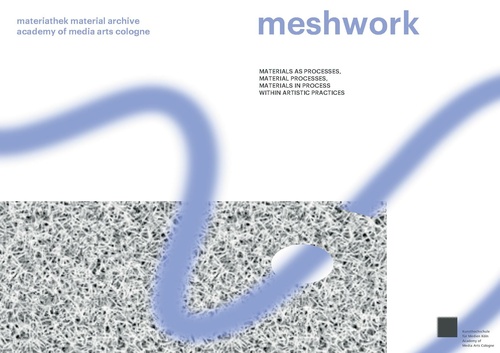Materiathek Veranstaltung
Aus exmediawiki
Version vom 7. Januar 2020, 15:37 Uhr von Lilian (Diskussion | Beiträge)
zurück zur Materiathek
friday, 17th
- morning
- greeting (Karin)
- introduction round (all)
- aspects/terms (everyone alternating)
see also: Themen/Sätze_Sammlung_für_dialogische_Einleitung#aspects_.2F_terms
dialogues/alliances: max 15 min/
guests: Adele Orcajada (MaterialDriven, London); Markus Joachim (ETH, Zürich)
Jacqueline Hen/Karin Lingnau (process of translation/topic of material fiction);
Anke Eckardt/Hans Bernhard (information and collecting; storage medium, agency);
Lilian Haberer/Alex Grein (archives/artistic archives);
Johannes mit?
Agustina: moderating it?
group discussion:
following every second dialogue (also 15 min plus 5 min change of equipment)
equipment: white board/Tafel, projector
noon:
microlectures (13:30-14:45)
5 min explanation what is a microlecture?
Exploring different ways to display material processes and how interfaces could help to exemplify these in an analogue-digital-networked environment.
5 min to find the team
groups of two
- 10 min preparation
- 5 min each person to talk to the other, 30 to 45 min alltogether
- how to present it to the others? each group 3 min, 30 min alltogether
Inhaltsverzeichnis
Materiathek Veranstaltung, notes
Workshop Überlegungen/Notizen
siehe vor allem Workshop_Überlegungen/Notizen#Dialog
Flyer
IST DAS DER AKTUELLE FLYER??
Einladungstext
Meshwork: Materials as processes, material processes, materials in process within artistic practices
Workshop, 17th January 2020
9:30–12:30 Session: Alliances.
13.30–16.30 Session: Interfaces
On the concept of meshwork, the research project MATERIATHEK – MATERIAL ARCHIVE initiates a transdisciplinary workshop to investigate material processes and their artistic applications. During the work session, we aim to articulate different material practices, to focus on Tim Ingold's concept of meshwork through case studies, and to recognize modes of action for material transformation. The anthropological term meshwork is understood as the dense tangle produced by involved beings in their becoming. In this process, they create weavings of entangled lines that grow, move, and interrelate. For our meeting, we will pay attention to these different roles and modes of alliances and junctions within artistic processes.
To guide the conversation, we propose the following questions: How do our different perspectives on the subject help us to expand the idea of the meshwork? How could the focus on knots and crossings of a meshwork help creating a different perception of artistic practices? Which tools are sufficiently flexible to establish a context, connections, and offer possibilities to expand the topic?
By introducing our perspectives in short dialogical presentations on materiality and their processes in the morning, we intend to discuss alliances of the meshwork in the arts and our modes of collaboration. In the afternoon, we will explore different ways to display material processes and how interfaces could help to exemplify these in an analogue-digital-networked environment.
MATERIATHEK – MATERIAL ARCHIVE is a research project by Prof. Dr. Lilian Haberer, Prof. Anke Eckardt, Karin Lingnau, Johannes Hoffmann, Agustina Andreoletti at the Academy of Media Arts Cologne (KHM, 2019).
Projekttext
Material perception in artistic processes. Materiathek and Material archive in the fringes of the arts.
The research project is dedicated to the observation and investigation of material as the basis of artistic production and practice. A central focus lies in a collaborative and transdisciplinary approach that draws together the knowledge on new materials –so-called immaterials–, speculative materials, as well as ephemeral materials and their potentials of transformation. In addition to including existing discourses, the topic will be articulated with the perspectives and modes of action in art and their processuality.
Within the project, our Materiathek. Material archive is being established. It is conceived as a collection of research material and results in analogue, digital, and networked ways. With various artistic-scientific experimental perspectives, it aims to create intersections in the understanding of materials in multiple disciplines such as the visual arts, architecture, design, natural sciences and technological materials research.
A research project by Prof. Dr. Lilian Haberer, Prof. Anke Eckardt, Karin Lingnau, Johannes Hoffmann, Agustina Andreoletti at the Academy of Media Arts Cologne (KHM, 2019)
